Arguably the most polarizing Buffalo Sabres player over the last three seasons, Rasmus Ristolainen is at a crossroads in his career in Buffalo. While boasting a booming slapshot and a penchant for physicality that makes fans drool, he has also been criticized by the analytics community.
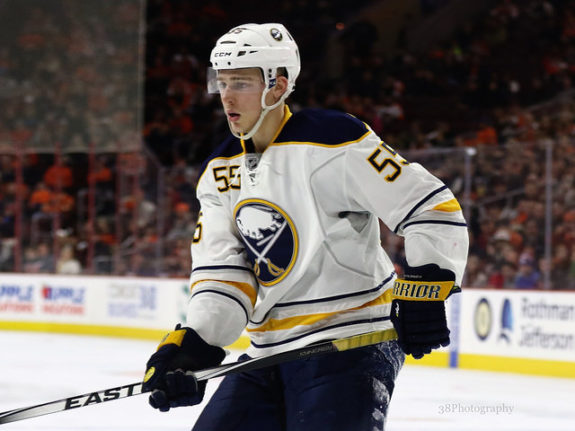
Things really came to a head during this challenging season. His abysmal plus/minus rating has been chalked up to being the No. 1 defenseman on some of the worst teams in NHL history. When I say abysmal, it’s the truth. Combining all seasons for all players from 1999 until now, Ristolainen holds the prestigious honour of having a minus-143, the worst in the league over that span. This is particularly alarming considering he didn’t begin to play regularly in the NHL until the 2014-15 season.
In any event, it became more and more apparent this season that his skills in the offensive zone are not enough to overcome his deficiencies in his own zone.
Ristolainen’s Impact on the Roster
Let’s look at Ristolainen’s impact on the Sabres’ two elite offensive talents this season. According to Natural Stat Trick, when Rasmus Dahlin was on the ice, he controlled 2.53% more shots than the rest of the team. When Dahlin was on with Ristolainen, that number plummeted to -9.85%. Jack Eichel controlled 2.29% more shots than his teammates. With Ristolainen, it dropped to -3.65%.
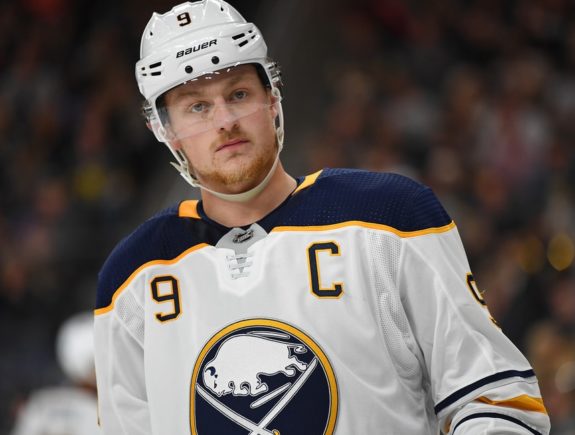
Eichel and Dahlin are the two pillars on which the Sabres, however shaky, are built. If the player on your team that receives the most ice time each night is consistently dragging down your offensive leaders, it begs the queston – how important is this player to my team?
Ristolainen’s Value
To be fair, Ristolainen is not the biggest issue plaguing the Sabres. Marco Scandella, Vladimir Sobotka and Kyle Okposo carry their share of the blame in limiting Buffalo’s offence. The difference is, none of these three will fetch very much, if anything, in a trade. In fact, they would likely cost draft picks or bringing on bad contracts, something the Sabres are in no position to do.
Ristolainen, on the other hand, would still carry value to NHL general managers, especially those more concerned with the eye test. His offensive flair, ability to run a power play, and tendency to play a physical game would make him an attractive piece. Add the fact that he is only 24 years old, is a right-handed shot, and is signed at a reasonable $5.4 million for the next three seasons, and you have yourself a valuable trade piece.
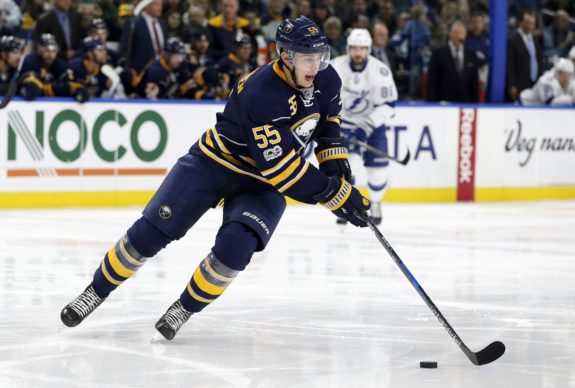
If Ristolainen is moved, what should he be moved for? There are numerous directions in which Buffalo could decide to go. They need a second-line centre and more offensive skill in the middle-six. Even with the acquisition of Brandon Montour, however, they still have needs on the right side of the defense, especially after the injury to Zach Bogosian. There could be solid options available that would make a difference to the overall makeup of the team.
Upgrading the Replacement
The target the Sabres could aim for is Winnipeg’s Jacob Trouba. In 408 NHL games, Trouba has averaged .439 points per game. In 424 games, Ristolainen has averaged .458 points per game. Over an 82-game season, that averages out to less than a two-point difference. Their offence is very similar.
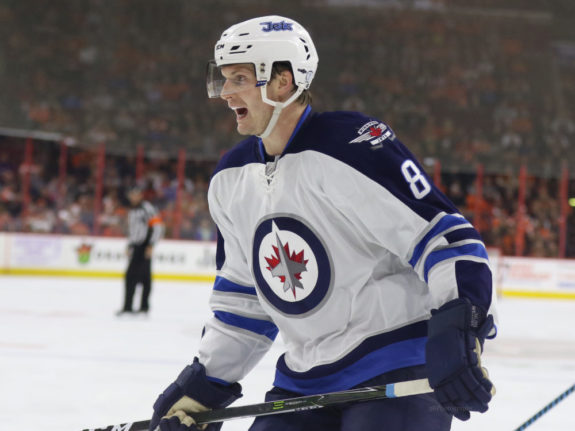
Trouba is also a right-shot defenseman and is only 25 years old. The main difference between the two is in their effect on other players around them.
This graphic from Evolving Hockey really helps to illustrate the difference. No matter in what zone the play starts, Ristolainen is going to bleed shots and expected goals against. Trouba, on the other hand, is very well equipped to get the puck out of his zone, move it up the ice, and make things happen offensively.

The Jets’ Situation
Due to contract concerns with the Jets, Trouba could be available. He has seemed reluctant to sign long-term with Winnipeg and the team is under tight constraints with some new contracts coming on the books this summer.
The Jets have about $23 million available to work with and face decisions on UFAs like Kevin Hayes, Brandon Tanev, Pär Lindholm, Matt Hendricks, Tyler Myers, Ben Chiarot and Bogdan Kiselevich.
Where the decisions get tougher is with Winnipeg’s RFAs. They need to face the music with hot-and-cold Patrick Laine, Kyle Connor, Andrew Copp, Nathan Beaulieu, Joe Morrow, and Trouba, as well as goaltenders Laurent Brossoit and Eric Comrie.
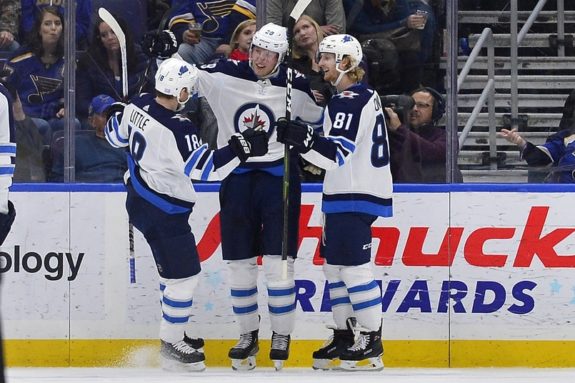
Perhaps the Jets feel this could be an opportunity to add a young defenseman who, with fewer minutes, could excel. They could also have him cost-controlled for three more seasons.
If the Sabres were able to pry the defenseman from Winnipeg, it would enable them to ice a formidable top-four featuring Dahlin, Montour, Lawrence Pilut and Trouba. It would mean less ice time for Scandella and Bogosian and the money required to sign Trouba would not present a problem. With their cap flexibility, the Sabres can use the money that went towards Ristolainen and add $2 million if necessary to facilitate a deal. Pieces can be added to either side to put a bow on the trade. A move like this would really be the best thing for both teams.